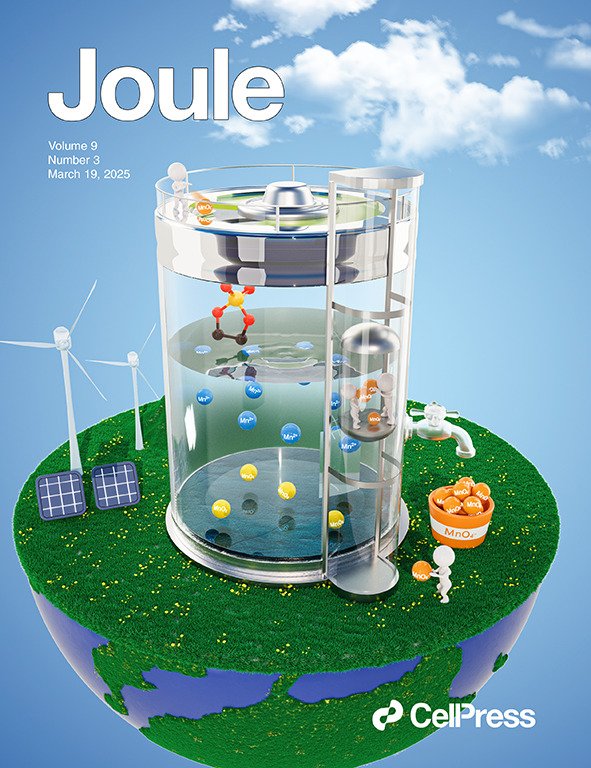

Journal Name: Joule
Overview
The joule (J) is a fundamental unit of energy in the International System of Units (SI). Named after James Prescott Joule, this unit plays a crucial role in physics, engineering, and daily applications. From electrical energy to mechanical work, the joule is essential in measuring energy transfer and consumption.
What is a Joule?
A joule is defined as the amount of work done when a force of one newton moves an object one meter in the direction of the force. In simpler terms, it is the energy required to:
- Lift a small apple (about 100 grams) one meter off the ground.
- Power a one-watt LED bulb for one second.
- Generate heat in an electrical circuit with resistance and current flow.
Key Applications of Joules
The joule is widely used across various industries and scientific fields:
1. Electricity and Power Consumption
- Watts and joules: Electrical energy is measured in joules, while power is measured in watts (W). Since 1 watt = 1 joule per second, electrical devices consume energy in joules over time.
- Battery capacity: Energy storage in batteries is often expressed in watt-hours (Wh) or joules, helping consumers understand device performance.
2. Heat and Thermodynamics
- Calories vs. joules: In nutrition, food energy is often measured in calories, where 1 calorie ≈ 4.18 joules.
- Heating systems: The efficiency of heaters, ovens, and stoves is calculated using joules, ensuring optimal energy use.
3. Mechanics and Work
- Kinetic energy: The energy of a moving object is measured in joules, based on its mass and velocity.
- Potential energy: When an object is elevated, the stored energy (gravitational potential energy) is expressed in joules.
Joule in Renewable Energy
With the shift towards renewable energy, joules play a key role in assessing the efficiency of solar panels, wind turbines, and hydroelectric systems. The higher the joule output per unit of input energy, the better the efficiency.
About
Joule is one of the most fundamental units of energy in physics and engineering. It plays a crucial role in measuring energy, work, and heat. Understanding the concept of a joule is essential for various fields, including electricity, thermodynamics, and mechanics.
What is a Joule?
A joule (J) is the standard unit of energy in the International System of Units (SI). It is defined as the amount of energy transferred when one newton of force moves an object one meter in the direction of the force. Mathematically, it can be expressed as:
1 Joule=1 Newton meter(N⋅m)=1 kg\cdotpm²/s²1 \text{ Joule} = 1 \text{ Newton meter} (N·m) = 1 \text{ kg·m²/s²}
In simple terms, if you push an object with a force of one newton for a distance of one meter, you have done one joule of work.
Where is the Joule Used?
1. Physics and Mechanics
In physics, the joule is used to measure work and energy transfer. When an object is in motion, the energy it possesses is known as kinetic energy, which is measured in joules.
2. Electricity and Power
Joules are also used in electrical energy calculations. One joule is the energy used when one watt of power is consumed for one second. This is expressed as:
1 Joule=1 Watt-second(W⋅s)1 \text{ Joule} = 1 \text{ Watt-second} (W·s)
3. Heat and Thermodynamics
In thermodynamics, joules measure heat energy. For example, the energy required to heat water or any other substance is calculated in joules.
4. Food and Nutrition
In the food industry, energy content is often measured in calories or joules. One dietary calorie (kilocalorie) is equal to approximately 4,184 joules.
Examples of Joules in Everyday Life
- A 100-watt light bulb consumes 100 joules per second.
- A smartphone battery with a 3,000 mAh capacity at 3.7V holds about 40,000 joules of energy.
- Running up a flight of stairs requires approximately 500 joules of energy.
Scope
Scope Joule is an advanced energy measurement and monitoring system designed to enhance efficiency and performance in various industrial and commercial applications. As businesses and industries strive for better energy management, Scope Joule offers a comprehensive solution to track, analyze, and optimize energy consumption.
What is Scope Joule? Scope Joule is a cutting-edge technology that helps users monitor their energy usage in real-time. By leveraging smart sensors, data analytics, and IoT (Internet of Things) capabilities, it provides precise insights into energy patterns, reducing waste and improving cost efficiency. This innovative system is ideal for manufacturing plants, commercial buildings, and smart homes looking to optimize their energy footprint.
Key Features of Scope Joule
- Real-Time Energy Monitoring – Gain instant access to energy usage data for better decision-making.
- Data Analytics & Reporting – Generate detailed reports to identify energy inefficiencies and optimize consumption.
- Smart Automation – Implement automated controls to reduce energy waste and lower costs.
- IoT Integration – Seamlessly connect with smart devices for enhanced energy management.
- Custom Alerts & Notifications – Set up alerts to detect unusual energy spikes or system failures.
Benefits of Using Scope Joule
- Cost Savings – Reduce electricity bills by identifying energy wastage.
- Improved Efficiency – Optimize energy usage to enhance productivity and sustainability.
- Eco-Friendly – Lower carbon footprint by adopting energy-efficient practices.
- Remote Access – Monitor energy consumption from anywhere via a mobile app or web interface.
- Compliance & Regulation – Ensure adherence to energy efficiency standards and regulations.
Why Choose Scope Joule? Scope Joule stands out from traditional energy management solutions due to its intelligent features and user-friendly interface. Whether you’re managing a small office or an extensive industrial setup, this system provides actionable insights to help reduce energy costs and improve efficiency.